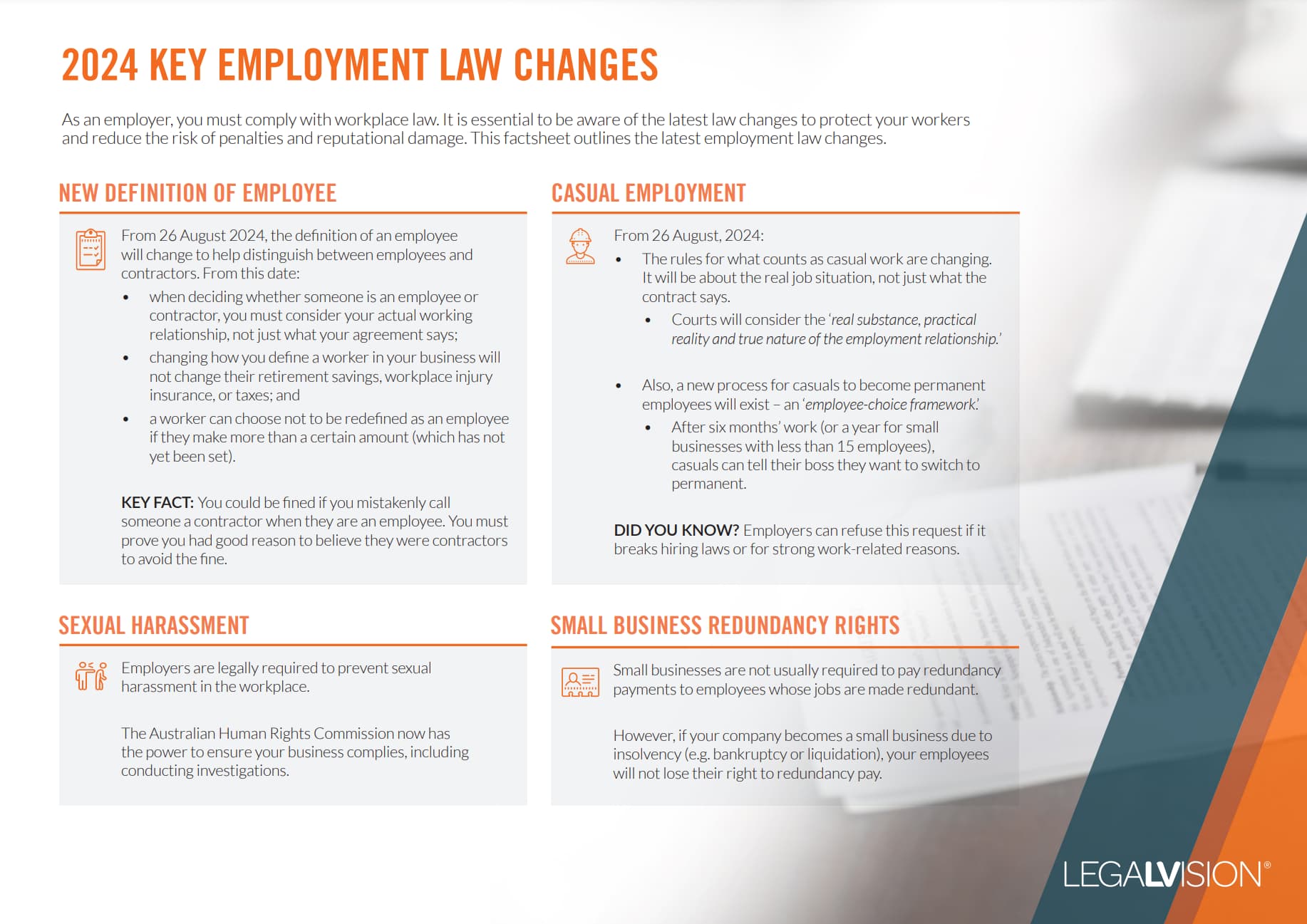In 2020, several unions lodged applications in the Fair Work Commission (FWC) to increase wages in the aged care industry. They claimed that the minimum wage by law did not reflect the true value of their work. The FWC made an interim decision in 2022 to provide an initial increase to aged care wages. Finally, on 15 March 2024, the FWC decided to provide further increases to minimum wages in this area. This article explores wage increases in the aged care sector.

As an employer, it is essential to understand what employment laws have changed and their implications for your business — particularly the changes to the Fair Work Act 2009 through the new Closing the Loopholes legislation.
What Are the Changes?
The Full Bench of the FWC has decided to increase the minimum wages for employees in the aged care sector under three different modern awards, being the:
- Aged Care Award 2010;
- Nurses Award 2020; and
- Social, Community, Home Care and Disability Services Industry Award 2010.
The wage adjustments aim to apply to direct care and indirect care employees. The decision comes after the historical undervaluation of work performed by aged care employees, partly due to gender-based assumptions, particularly concerning direct care workers.
The decision will also result in some employees previously classified under the Nurses Award 2020 falling under the Aged Care Award 2010 moving forward. Likewise, a new supervisory classification under the Aged Care Award 2010 will account for this. Some similar classifications between the awards will also have their terms standardised.
What Are the Next Steps?
While the FWC has confirmed wage increases for relevant employees, they are yet to finalise a timeline for these changes. Currently, the FWC is calling for submissions about the phasing in of the changes and the proposed amendments to the modern awards. After May 2024, the FWC can confirm the date these changes take effect.
Continue reading this article below the formWhat Will Be the Impact of These Changes?
The FWC’s decision aims to align the modern awards with the underlying purpose of the Fair Work Act 2009 (Cth). In particular, the changes hope to promote gender equality and will undoubtedly impact many businesses in the aged care sector.
Importantly, businesses must account for this decision from a financial perspective and identify any workers who may change classifications. Relevant unions will likely monitor the implementation of workplace changes. Accordingly, employers in the aged care sector must comply with their new obligations from day one (once that date is determined).
Key Takeaways
The Fair Work Commission (FWC) has accepted wage increases in the aged care sector after reviewing the historical undervaluation of work performed by relevant workers. These increases will apply to direct and indirect care employees. The minimum wages for relevant direct care employees are increasing between 13.3% and 28.5%. For indirect care employees, the minimum wage increase is a more modest 3%.
The FWC has yet to announce when these changes will take effect. Still, all businesses affected by this decision should prioritise seeking legal advice to comply with their new obligations.
To understand how the changes will impact your aged care workers, our experienced employment lawyers can assist as part of our LegalVision membership. For a low monthly fee, you will have unlimited access to lawyers to answer your questions and draft and review your documents. Call us today on 1300 544 755 or visit our membership page.
We appreciate your feedback – your submission has been successfully received.












